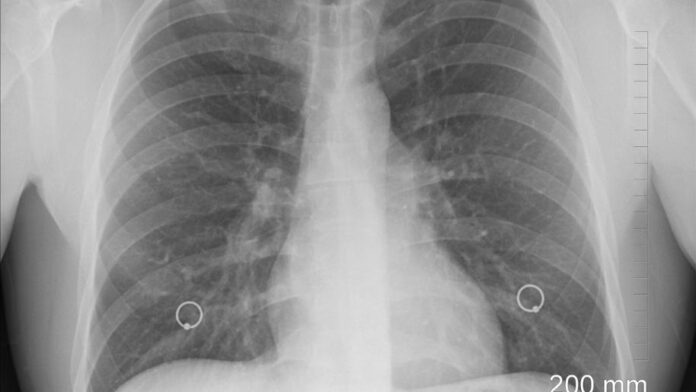Introduction
In a groundbreaking revelation, a recent medical study has unearthed a significant connection between vitamin K deficiency and the heightened risk of developing lung diseases and related complications. Published in the prestigious medical journal ‘ERJ Open Research’, this research underscores the pivotal role of vitamin K in maintaining optimal lung health. This article delves into the profound implications of vitamin K deficiency on lung function, highlighting the importance of a well-balanced diet and its impact on overall respiratory well-being.
Understanding the Link
Vitamin K, often associated with blood clotting and bone health, now takes center stage in the realm of lung health. This essential fat-soluble vitamin plays a crucial role in regulating calcium, a mineral vital for various bodily functions, including blood clotting and bone metabolism. However, its relationship with lung health has recently come under scrutiny.
Research Insights
The study, encompassing an extensive examination of nearly 4,000 volunteers, was designed to explore the intricate connection between vitamin K deficiency and lung problems. Through meticulous tests and comprehensive questioning, the researchers were able to discern a significant correlation between inadequate vitamin K levels and the onset of lung diseases and related complications.
Evident Symptoms and Implications
The findings of the research resonate with the experiences of the volunteers who exhibited symptoms such as breathing difficulties, wheezing, and lung pain. These symptoms not only impair the quality of life but also highlight the role vitamin K plays in maintaining the smooth functioning of the respiratory system. Experts have noted that vitamin K contributes to proper blood circulation and inhibits excessive blood clotting. However, when there is a deficiency of this vital nutrient, the blood clotting mechanism goes awry, potentially impacting the health of the lungs.
The Mechanism Unveiled
The intricate link between vitamin K and lung health lies in its influence on blood clotting and calcium regulation. When vitamin K is deficient, the body’s ability to regulate calcium diminishes, leading to an imbalance in the blood clotting process. This imbalance can trigger the formation of blood clots that may eventually migrate to the lungs, causing potential complications such as pulmonary embolism. Therefore, maintaining adequate levels of vitamin K is pivotal to prevent such scenarios and safeguard lung health.
Asthma and Beyond
The ramifications of vitamin K deficiency extend beyond just lung complications; experts have noted that it can also exacerbate existing conditions such as asthma. The intricate interplay between vitamin K, calcium, and inflammation has a profound impact on the immune response. Insufficient vitamin K levels may contribute to an exaggerated inflammatory response, intensifying the symptoms of asthma and other respiratory disorders.
Addressing the Issue
Fortunately, preventing vitamin K deficiency and its associated lung health issues is well within reach. A balanced diet rich in vitamin K can be achieved through the consumption of leafy greens, broccoli, Brussels sprouts, and other vitamin K-rich foods. Additionally, individuals with specific dietary restrictions or medical conditions should consider consulting healthcare professionals or registered dietitians to ensure they receive adequate vitamin K intake through supplements if necessary.
Related Article: The Essential Guide to Optimal Nutrition: Fueling Your Body for Peak Health and Performance
Conclusion
The nexus between vitamin K deficiency and lung health underscores the intricate relationship between nutrition and wellness. As highlighted by the extensive research and clinical findings, maintaining optimal levels of vitamin K is instrumental in promoting lung health, preventing respiratory complications, and potentially ameliorating existing conditions like asthma. By embracing a balanced diet and making informed dietary choices, individuals can take proactive steps towards safeguarding their lung health and overall well-being.

